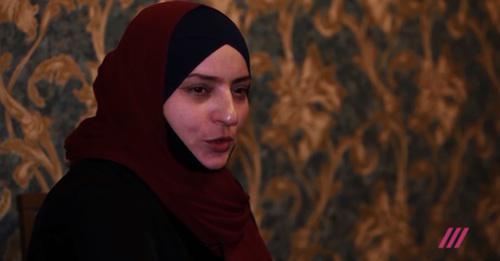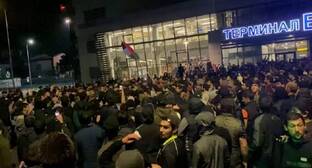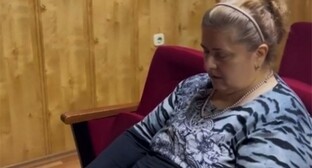
08 March 2018, 14:15
"Dozhd": Dagestan and Chechnya treat former IS residents in different ways
Women who returned from the terrorist "Islamic State" (IS, banned in Russia) live normal lives in Chechnya, while in Dagestan and Ingushetia, they and their family member face special treatment. The "Dozhd" (Rain) TV Channel reported about the life of those who voluntarily returned to the Caucasus under the guarantees of the authorities.
According to sources, the society has different views on women who returned from the IS: for some people, they are victims who made a mistake, while others treat them as terrorists.
"In Chechnya, they believe they are doing a good deed, and in Makhachkala, they answer they did not even consult the authorities of Dagestan, whether it was worth returning citizens to their homeland and what to do with them then," the report says.
The report also describes stories of three young women who returned from Syria, including a Chechen woman and two women from Dagestan.
While Khava Betermurzaeva adapts to peaceful life in Chechnya, Dagestani woman Victoria Budaikhanova stays in a Moscow SIZO (pre-trial prison), and Zalina Gabibulaeva, another woman from Dagestan, became a figurant of a criminal case.
"I do not see acts of aiding and abetting terrorism among the arguments voiced by investigators, who say that my daughter was engaged in cooking and washing clothes," said Bolatkhan Budaikhanov, the father of Victoria Budaikhanova.
While leaving for the Middle East, all three women imagined going to the ideal world of the Sharia, where they would be able to devote their lives to their families and religion, but they were forced to return by constant bombing and lawlessness of local secret services.
In Chechnya, the authorities suggest opening rehabilitation centres for people returned from Syria and Iraq, said Kheda Saratova, a member of the Human Rights Council under the leader of Chechnya.
Rights defenders believe women from the IS will not want to voluntarily return home to Russia if the secret services continue to institute criminal cases against them.
Full text of the article is available on the Russian page of 24/7 Internet agency ‘Caucasian Knot’.




